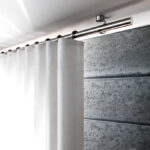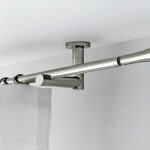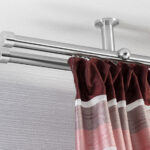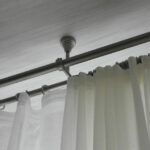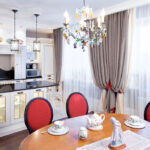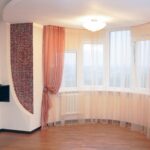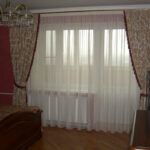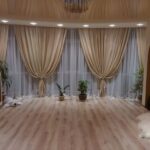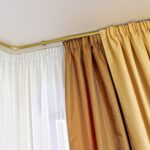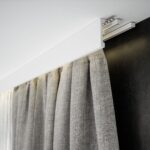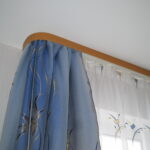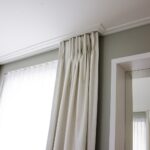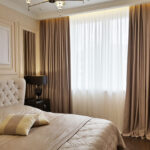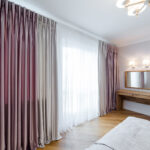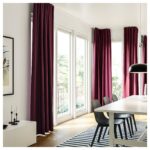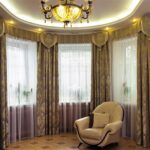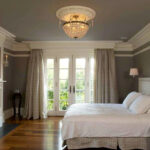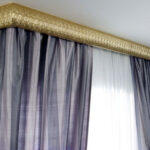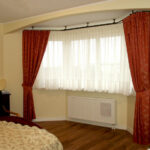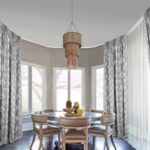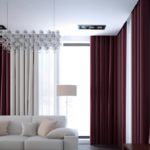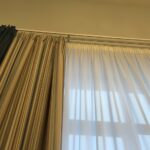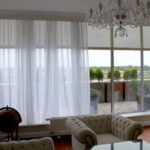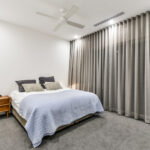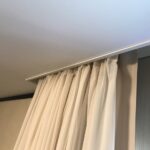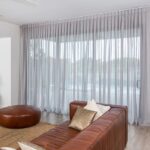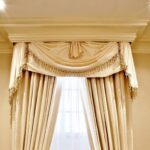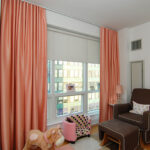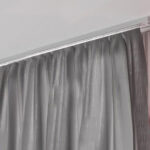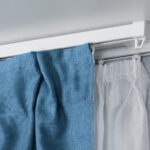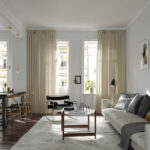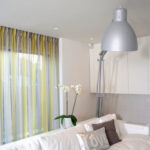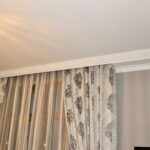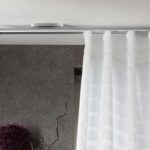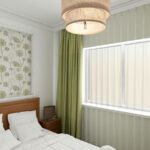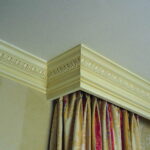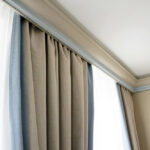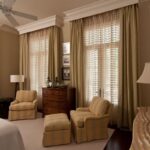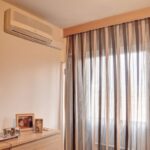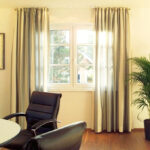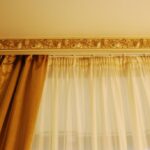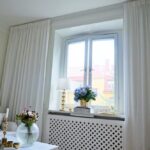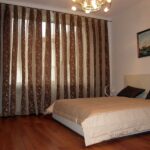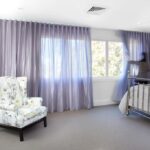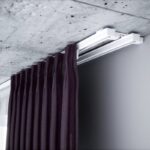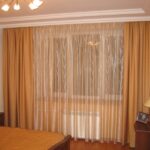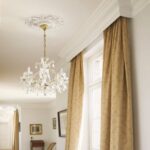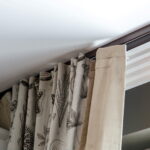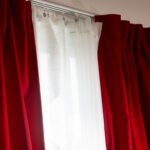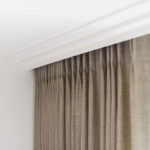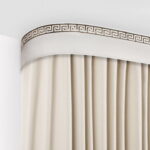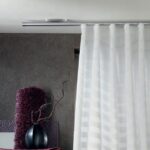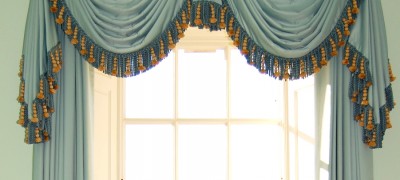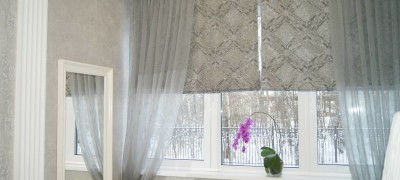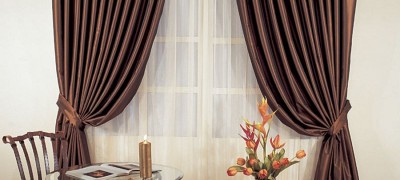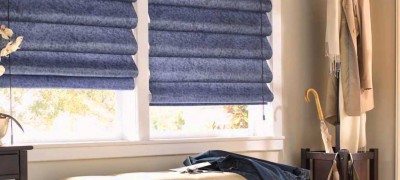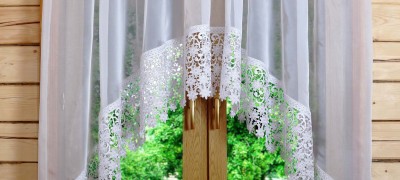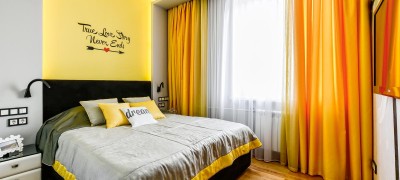Description and characteristics of ceiling cornices
The renovation can be considered unfinished if you do not hang curtains suitable for the interior. This requires a cornice, which can be wall-mounted or ceiling-mounted. Recently, it is the last option that is more often preferred. How it differs and what is its advantage, we will consider further.
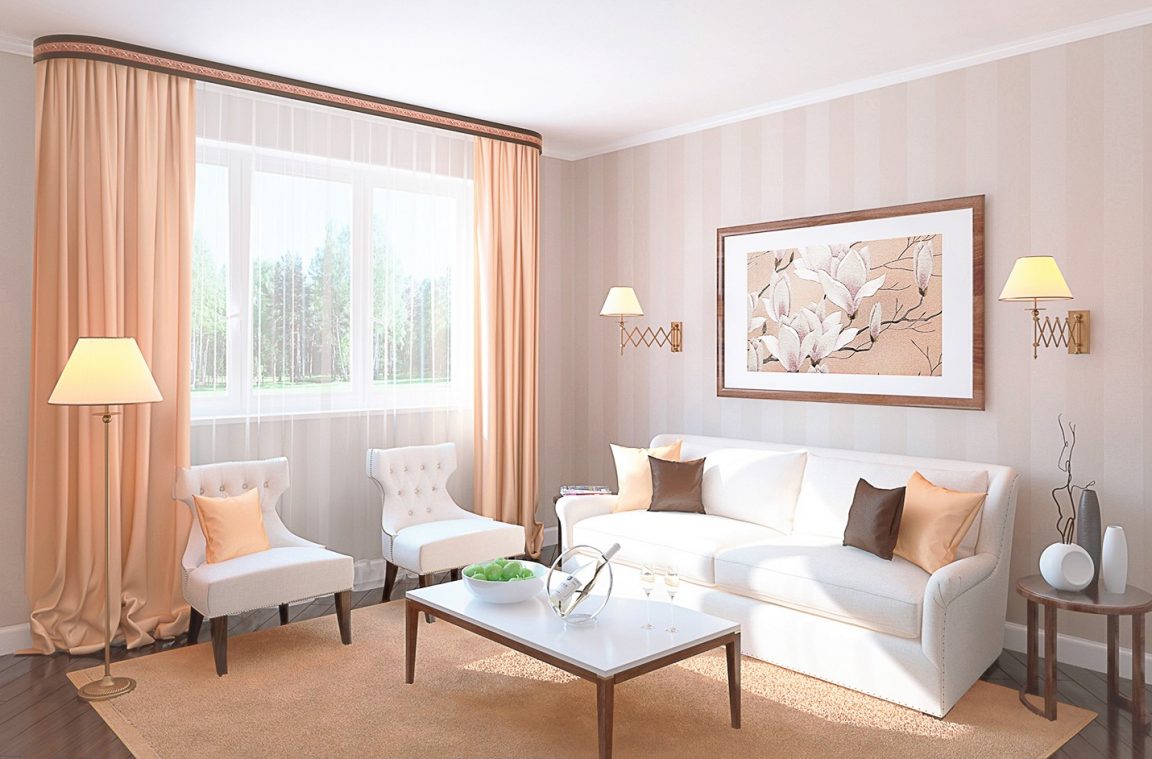
- Advantages and disadvantages of ceiling curtain rods
- Varieties of ceiling cornices
- Characteristics of ceiling cornices
- Types of fastening curtains to the ceiling cornice
- The use of cornices in the interior
- Which ceiling cornices are better
- Video: installation of a ceiling curtain rod
- 50 design options for curtains on ceiling eaves
Advantages and disadvantages of ceiling curtain rods
In comparison with wall models, ceiling curtain rods have the following advantages:
- Possibility to hang curtains from the ceiling level. This technique allows you to visually expand the space in the room, making it taller and more spacious.
- It is much easier to remove or hang curtains on it. For fastening the canvas, there are special hooks inserted into the runners. To prevent them from slipping, plugs are inserted along the edges, removing which it will be possible to remove the entire curtain almost instantly.
- Due to its compact size, such a cornice is practically invisible and the illusion is created that the curtain is coming out of the ceiling.
- The ability to support more weight compared to the wall-mounted model.
- The ability to hide the imperfections of the wall, pipes.
- Affordable cost.
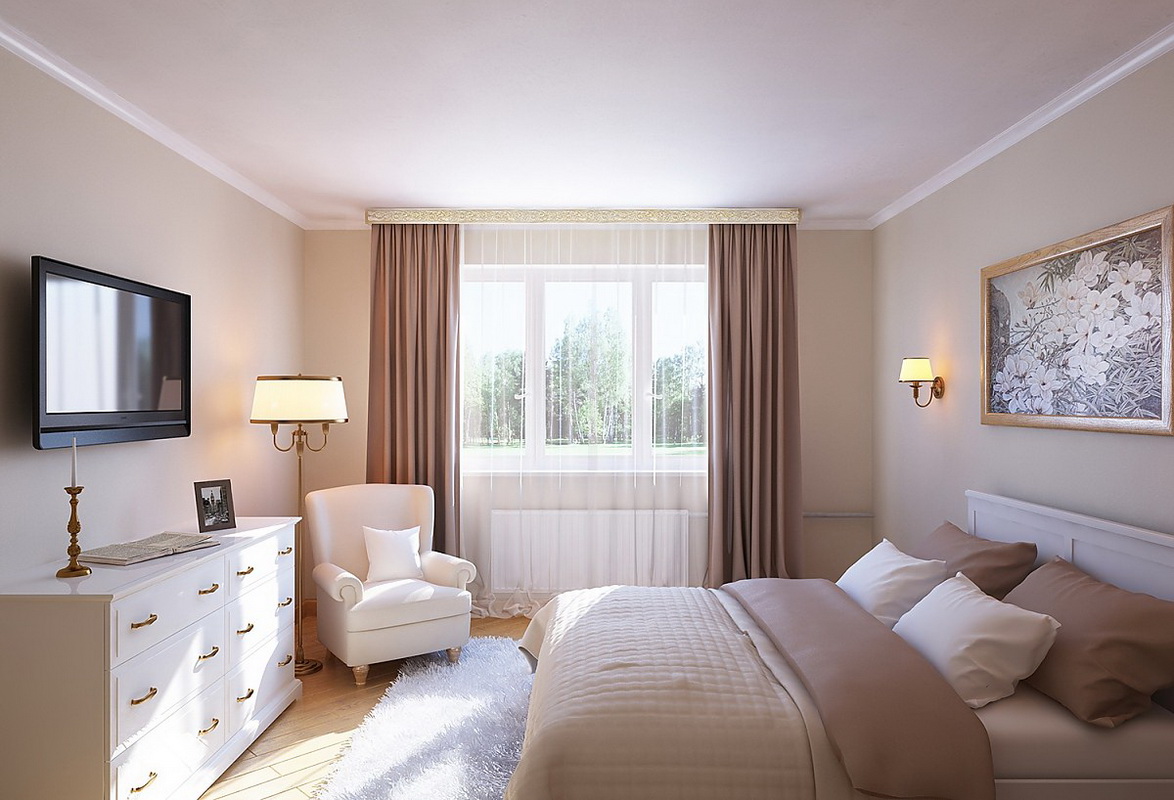
It has not so many disadvantages:
- The inability to hang the cornice without special structures on a stretch ceiling or drywall.
- After removing the curtain, holes will remain in the slab that will need to be repaired.
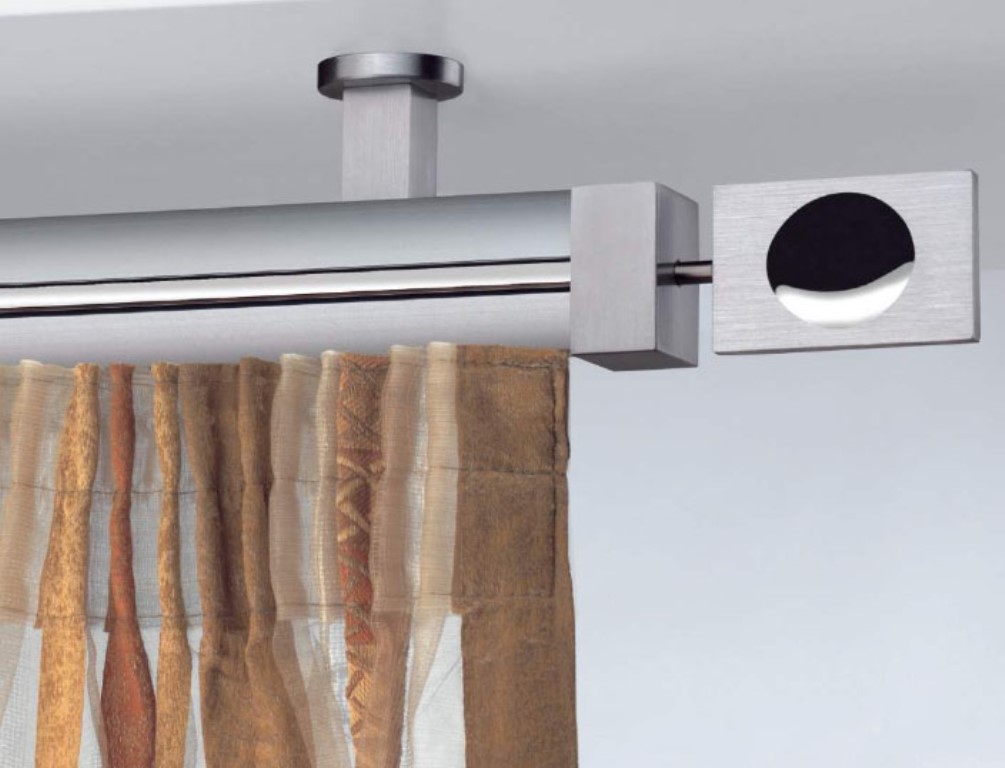
Varieties of ceiling cornices
On sale you can find a huge number of cornices attached to the ceiling. They all differ in design and material from which they are made.
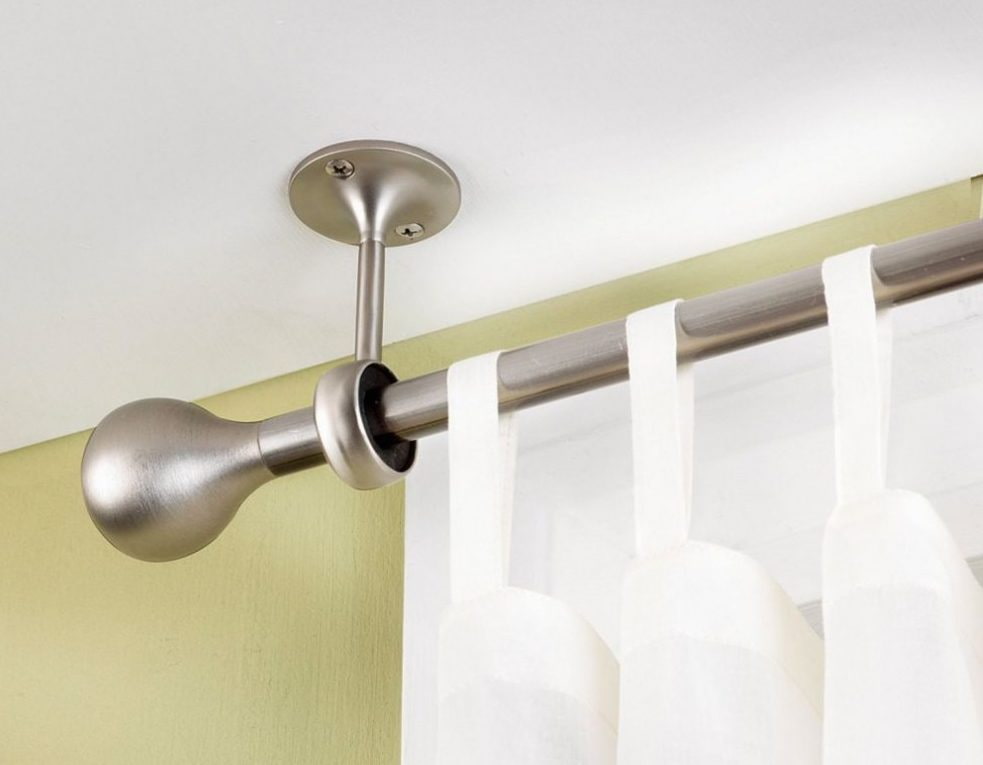
Pipe
This option is very similar to the wall one, except that the bracket is not attached to the wall, but to the ceiling. The set includes hooks on which the curtains are hung. When choosing them, you need to pay attention not to the following details:
- The distance between the brackets should be up to 2 meters. If the curtain has a shorter length, you need to use 2 brackets, if more - 3 or 4. In this case, the pipe will be securely fixed and will not sag under a heavy curtain.
- The diameter of the forged product should be about 16 mm, the rod made of plastic or wood - 28 mm. This is suitable for light curtains. If the curtain is thick and heavy, choose a larger diameter.
Especially beautiful, such a cornice will look with a high window opening. Suitable for eyelet curtains.
Profile
They can be one-, two-row and three-row. For example, ceiling cornice for curtains st-1100. They are made from plastic or aluminum. The advantages of profile cornices are:
- the ability to withstand heavy weight;
- the ability to fix the baguette bar;
- ease of installation;
- easy to clean and do not lose their aesthetic and functional qualities for a long time;
- can be decorated with a bulwark - a decorative strip;
- when washing the curtains, it is not necessary to remove the hooks from it, they will not deform even during machine washing.
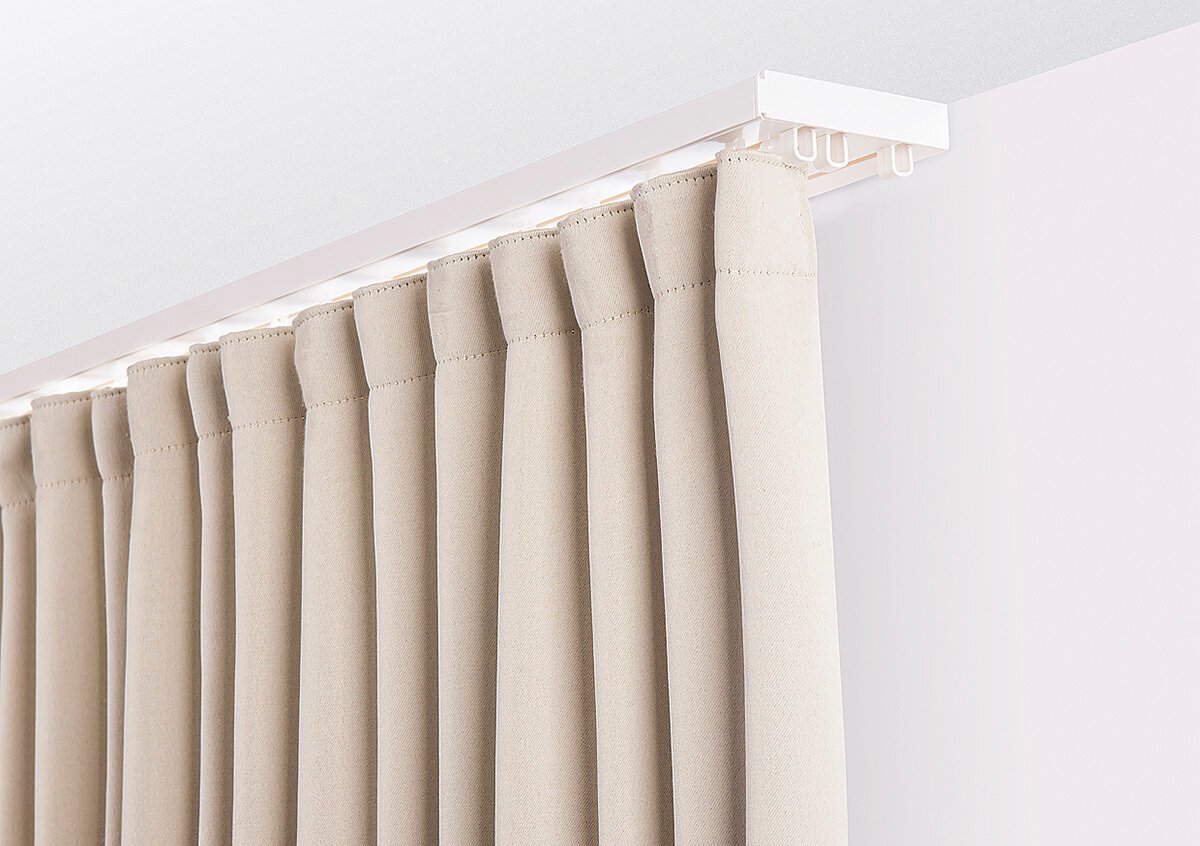
Strings
Such a cornice is attached using brackets. It is made of metal fishing line, which is practically invisible, this creates the appearance that the canvas is just hanging in the air. String curtains are suitable for light textiles.
The advantage of such a cornice is:
- simplicity and speed of installation;
- minimum cost;
- the ability to use in various design compositions.
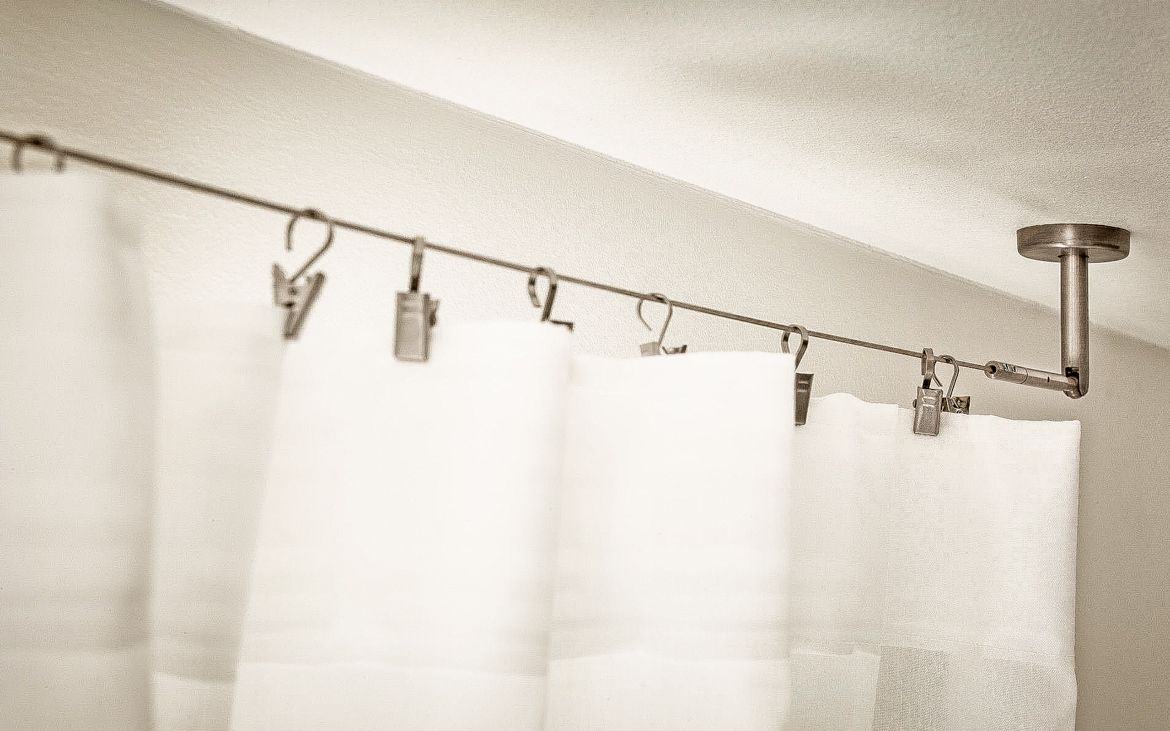
Baguette
Such curtains look very elegant. The most budgetary options are plastic models. The most expensive baguettes are made from natural wood. They are fixed to the ceiling. The inner part of the cornice is completely covered with a wide strip, the ends of which can be rounded or angled. Their advantages:
- the ability to withstand heavy loads;
- unique style;
- the ability to hide wall defects using a decorative console.
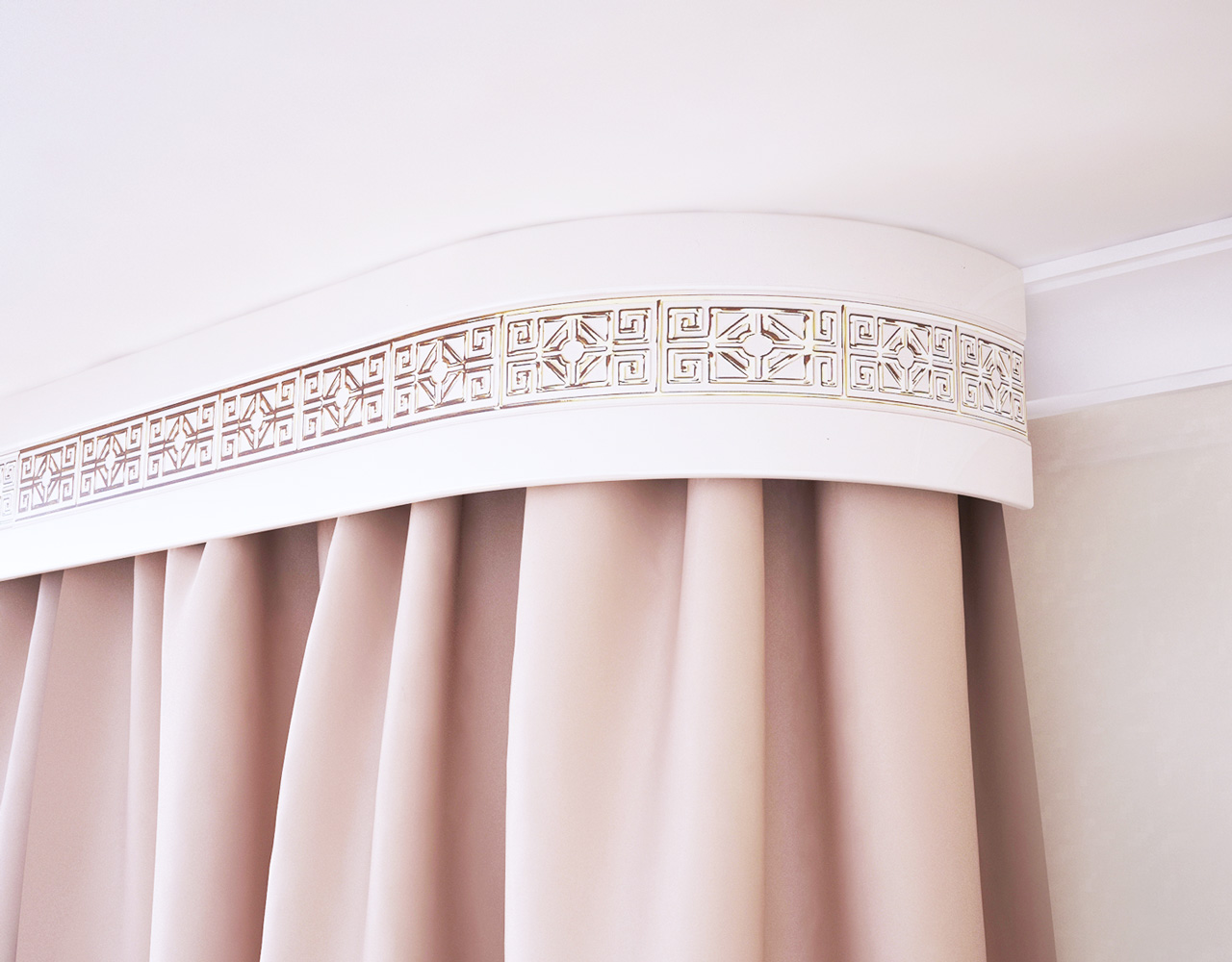
Characteristics of ceiling cornices
When choosing the width of the ceiling cornice, it is important to consider the number of curtains that will hang here. If it is going to be a single curtain, a small plastic option can be chosen. It is better to choose a two-row model from a metal profile. For a large window opening, it is best to consider a metal or wood structure.
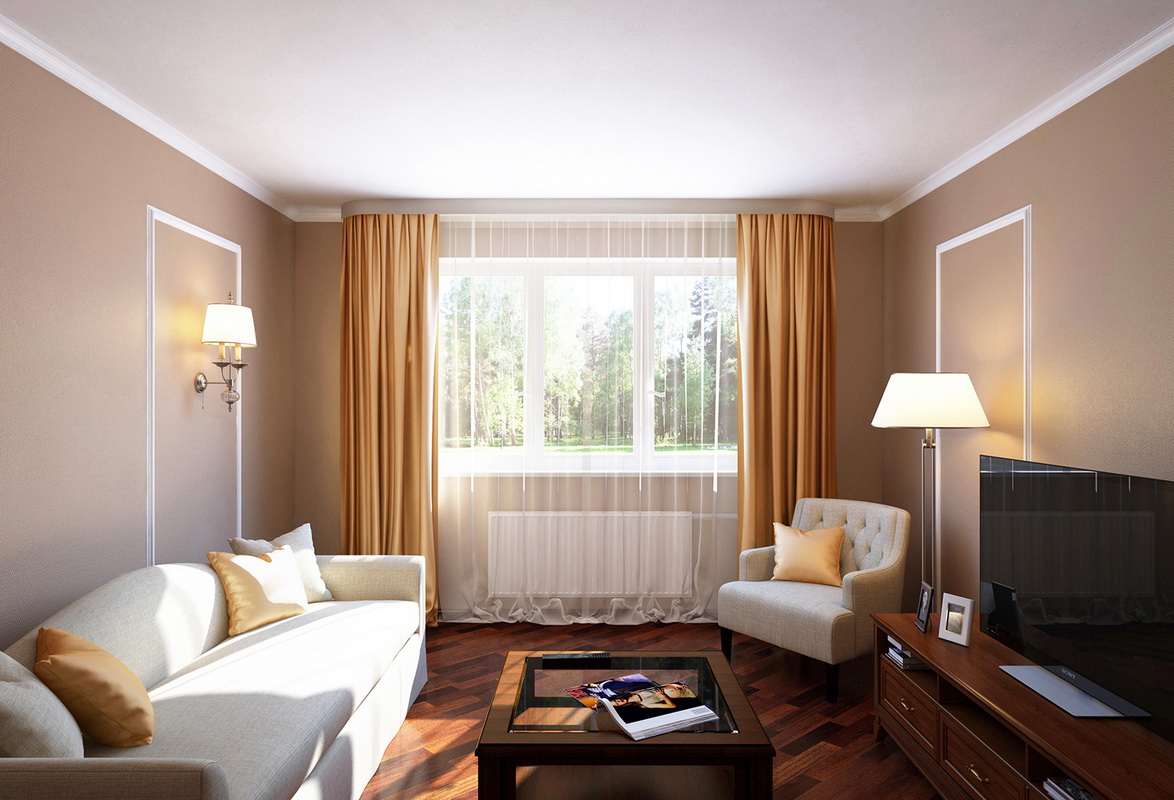
When calculating the appropriate length of the curtain, you need to take into account the difference in the length of the product and the size of the working area. Usually, the latter indicator is 30-40 cm wider than the window opening. To make the window appear wider, the curtain must partially cover the wall.
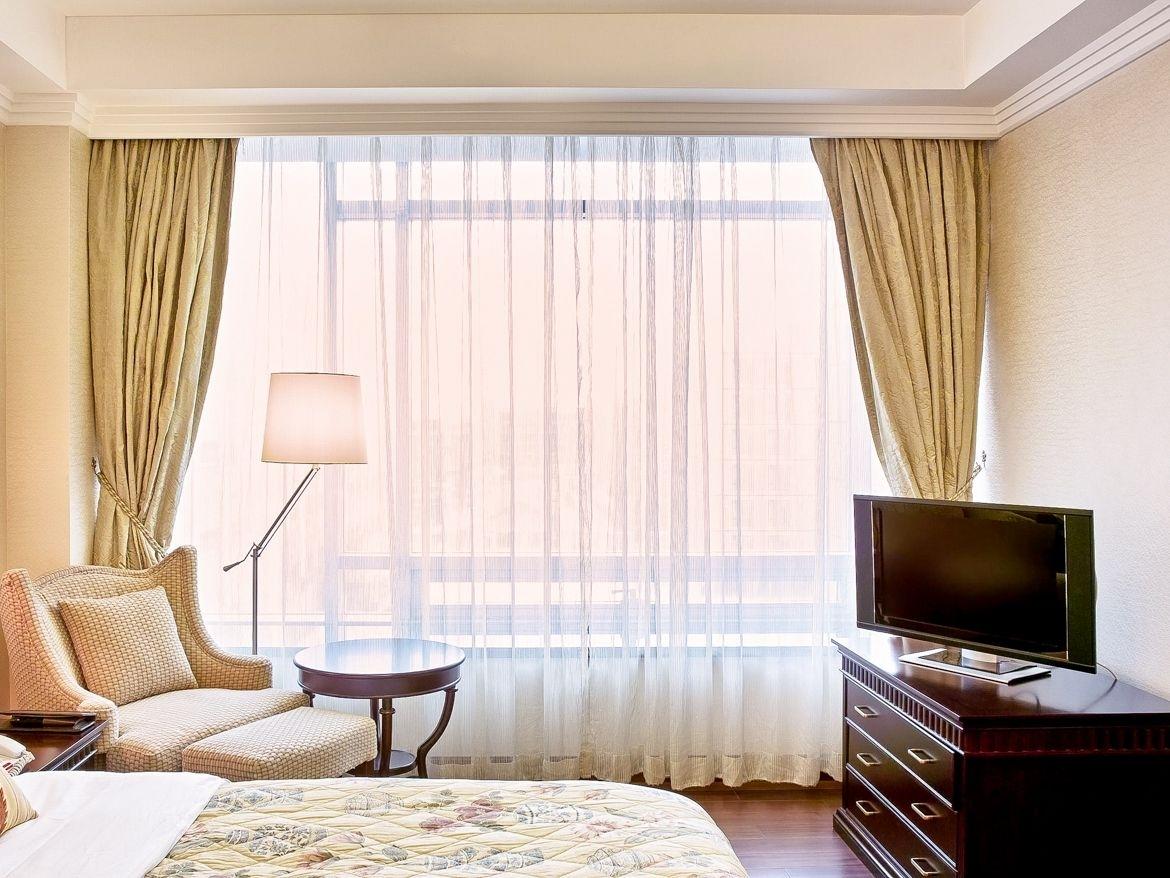
The standard curtain length is 3 m.Some wooden models and options with a rod with a diameter of less than 75 mm can reach 4 m.Metal curtains are usually made 1.5-3.5 m long.Eaves longer than 4 m are not common and are mainly made under customer order. The width of the product directly depends on the number of rows.
Types of fastening curtains to the ceiling cornice
The method of attaching the curtain to the cornice depends on the type of curtain. Some options are versatile and allow you to hang any textiles.
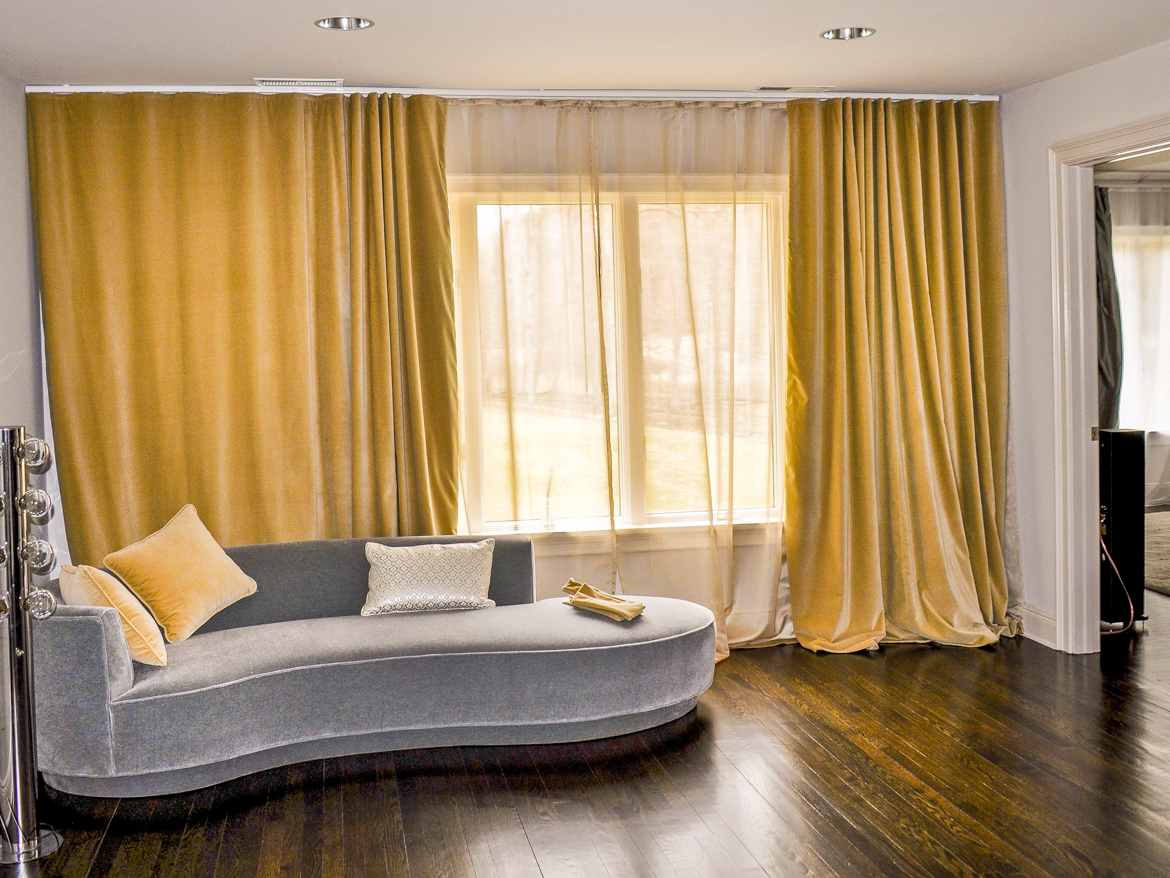
There are such options:
- Ties. You won't always be able to use them. For example, they are not suitable for a loft-style room, minimalism or classic. At the same time, in Provence or rustic style, they will look perfect. Usually the ties are made from the same fabric as the curtain itself. They can be fastened with knots, bows.
- Hinges. Outwardly they resemble strings, but can be used in almost any room, giving it romantic notes. Usually the loops are sewn from the same fabric as the curtain. But, sometimes you can find contrasting color options, as in the photo. They look original in the nursery. This mounting option is convenient and practical.
- Rings. Most often they are used when decorating a room in a classic or techno style. Suitable for tubular cornices.
- Hooks, clamps are the most common mounting options. They can be made of plastic or metal. Users note the ease of use. But, for too thin material, they may not work, as they can leave puffs on the fabric.
- Magnets are an alternative to hooks that won't ruin your curtain. This option will look best on a string cornice.
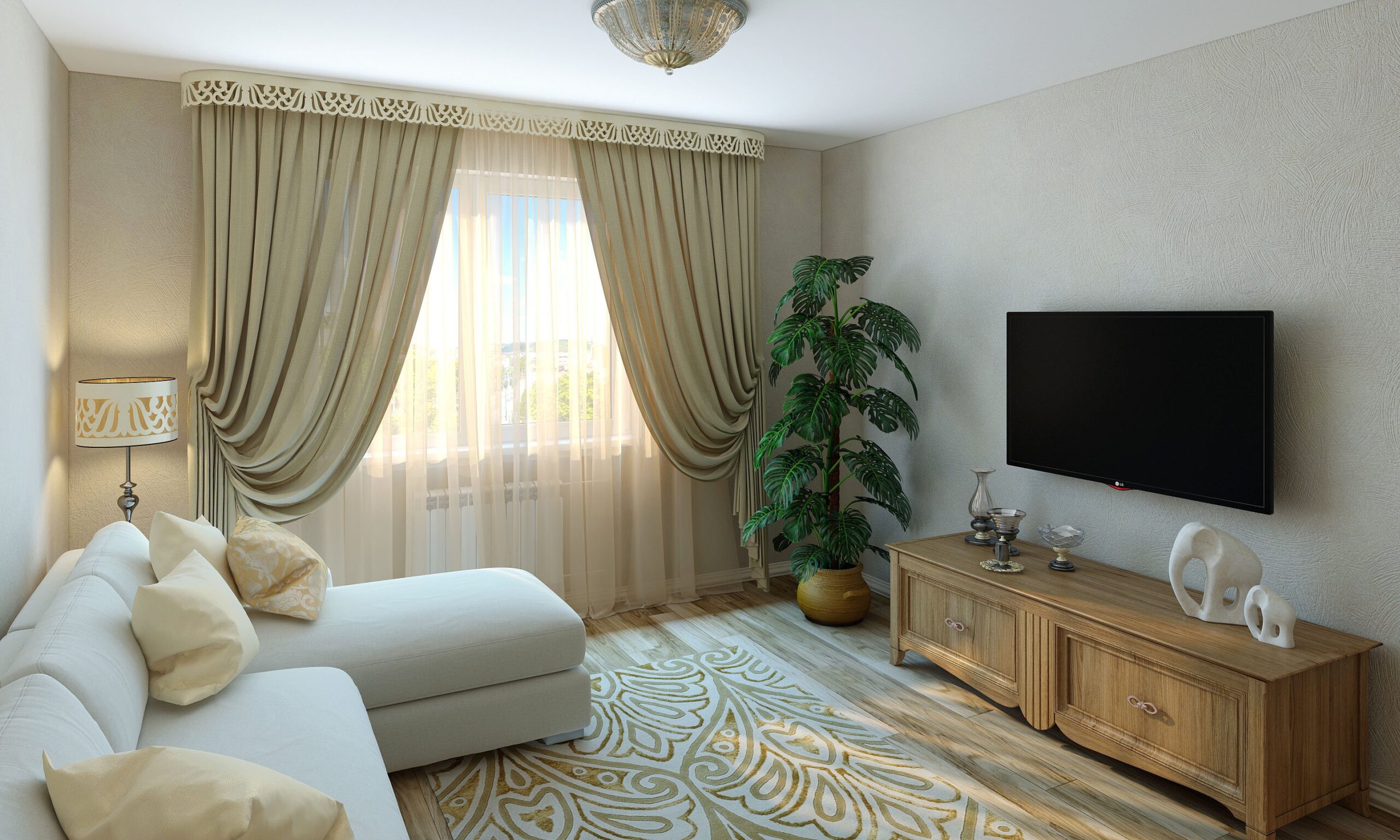
The use of cornices in the interior
When choosing a cornice, the functional purpose of the cornice and the style of the room are always taken into account:
- Carved wooden curtains are used in classic rooms, country style and French Provence.
- The forged model is also appropriate in a classic or rustic interior.
- Metal curtains are suitable for hi-tech, minimalism, Scandinavian and other laconic trends.
- Plastic models, finished with natural materials, are used when decorating a room in ethnic or eco style.
Which ceiling cornices are better
For each situation, a different version of the cornice is suitable. Quality models are produced by the following manufacturers:
- "Escar" - their range is regularly updated with new models, among which there are pipe, profile, tire, metal, vintage and other options. Some models are equipped with a control system and decorated with a baguette.
- Artex produces original metal and flexible models, complemented by decorative overlays.
- Legrand is a manufacturer of high quality elegant curtains. The range of products is huge, here every buyer can find a suitable option in terms of quality and price.
- "Master" - offers stationary and electrical options for curtains. Their assortment includes Japanese roller blinds with a cornice.
- DDA is a high-tech products company. Among their assortment are models that fit any curtains.
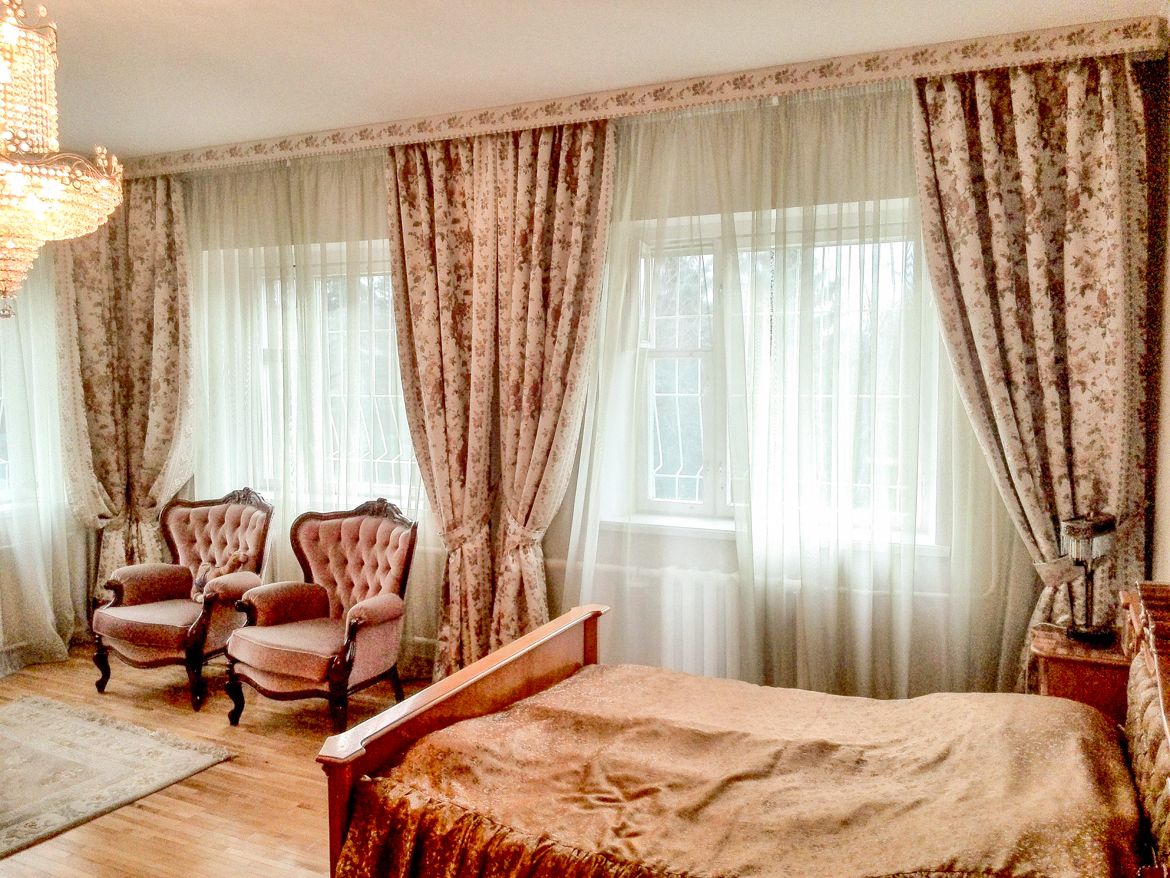
The choice of the correct ceiling cornice will determine not only the style and attractive appearance of the room, but also the service life of the curtain itself. To avoid disappointment and unnecessary expenses, you need to choose a mount based on the type, material of curtains and other criteria.
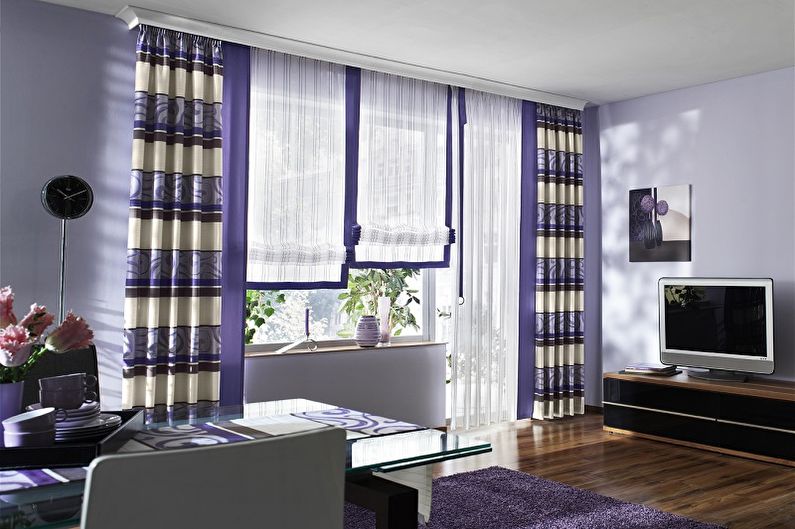
Video: installation of a ceiling curtain rod
